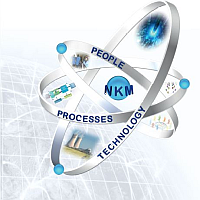The conference will provide an opportunity to share experiences and lessons learned in the nuclear sector related to managing nuclear knowledge and to share practical approaches to knowledge management (KM) that can be used at the organizational, national, and international levels to develop and maintain a strong nuclear knowledge base. Various issues related to specific human competencies, methodological or process knowledge and technology-related knowledge that are needed to support the safe and sustainable application of nuclear technology will be addressed.
The conference will address and bring together managers, decision-makers and KM specialists from all types of organizations involved in the nuclear sector, including nuclear facility owners and operators, regulatory bodies, government agencies, design organizations, reactor and technology vendor organizations, technical support organizations, suppliers, research and development organizations, education and training institutions, and standards development organizations.
The conference will address and bring together managers, decision-makers and KM specialists from all types of organizations involved in the nuclear sector, including nuclear facility owners and operators, regulatory bodies, government agencies, design organizations, reactor and technology vendor organizations, technical support organizations, suppliers, research and development organizations, education and training institutions, and standards development organizations.
The conference will consist of both plenary and parallel sessions, blending high-level, keynote sessions with more practical sessions. Plenary sessions will be ongoing throughout the week and during parallel sessions only two tracks are planned to be held simultaneously. Eight thematic tracks are planned, as described in the page thematic tracks.
Persons who wish to give presentations (oral presentations or interactive poster presentations) at the conference must submit a contributed paper on one of the thematic topics.The paper could be in one of the two formats below; for each, specific guidance is provided separately:
Both formats will be accepted.

